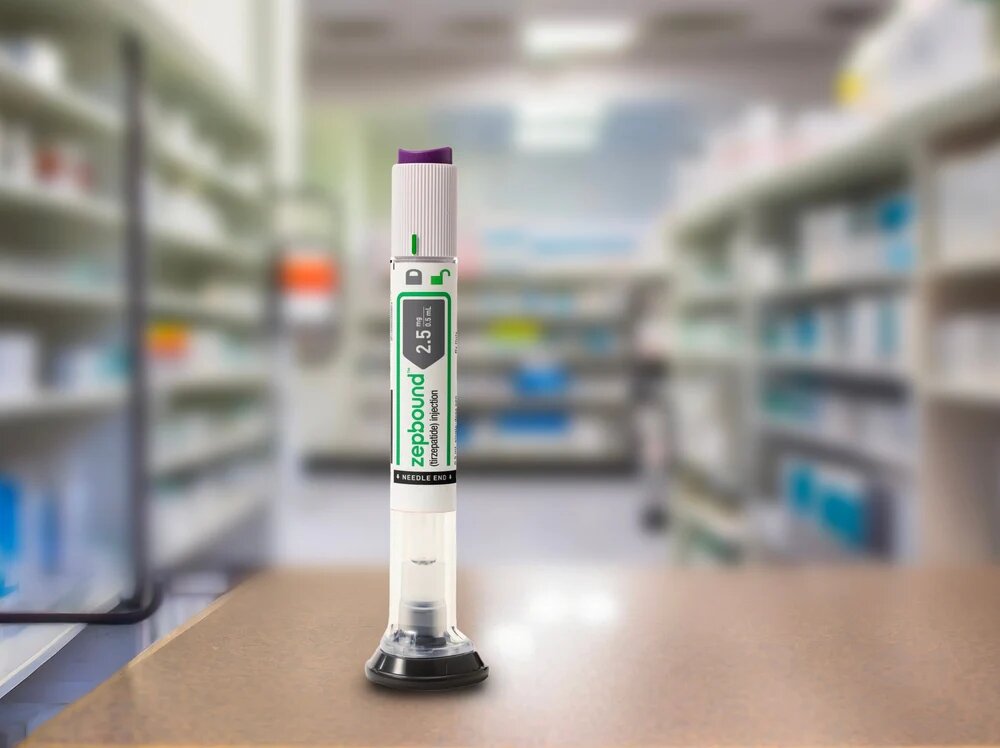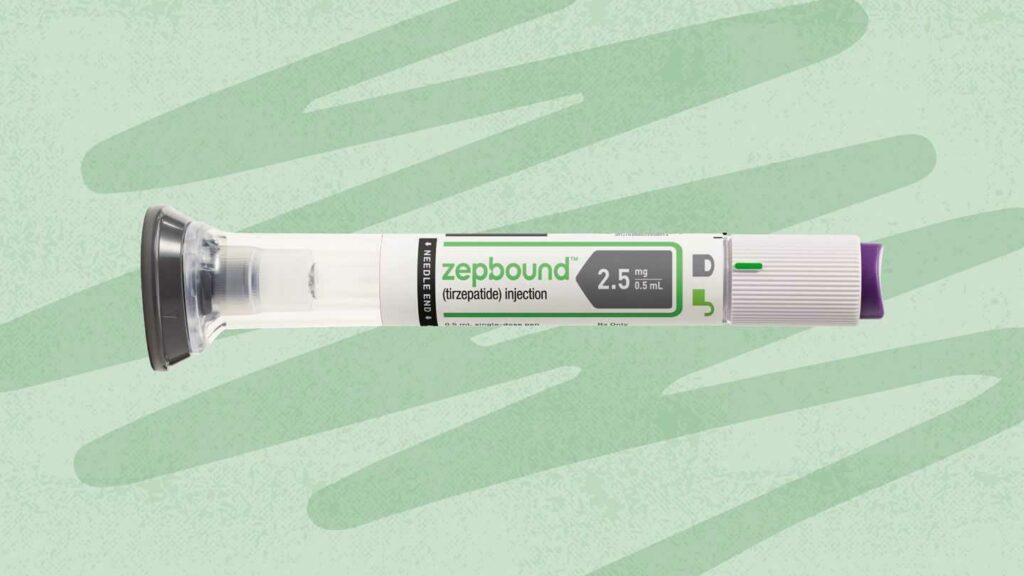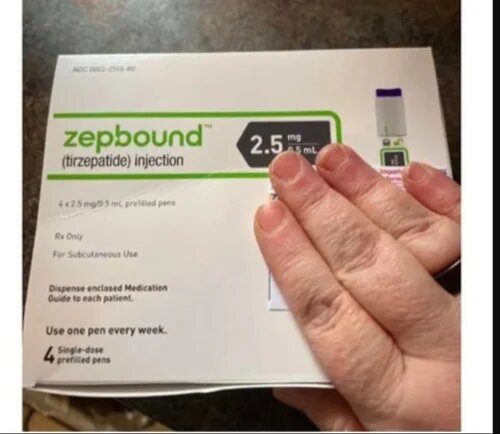Zepbound Coupon – Optimize Your Journey!

In the fast-paced world of online shopping, savvy consumers are always looking for ways to save a few extra bucks.
Zepbound is contraindicated in patients with a personal or family history of Medullary Thyroid Carcinoma (MTC) or Multiple Endocrine Neoplasia type 2 (MEN 2).
It can be a personalized solution on your journey to well-being. Your path to better health starts now. Seize it with Zepbound.
Table of Contents:
Contraindications – Check Medical Compatibility!
Zepbound is not recommended for individuals with a personal or familial background Presence of Medullary Thyroid Carcinoma (MTC) or Multiple Endocrine Neoplasia type 2 (MEN 2).

Additionally, caution should be exercised in patients with a known severe hypersensitivity to tripeptide or any of the constituents present in Zepbound.
Notably, there have been documented instances of severe hypersensitivity reactions, such as anaphylaxis and angioedema, associated with the use of this medication.
It is imperative for healthcare professionals to carefully consider these contraindications and potential adverse reactions when prescribing Zepbound to patients.
Read Also: WALMART REPORT AN ABSENCE – YOUR QUICK GUIDE TO SEAMLESS REPORTING!
1. Thyroid C-cell Tumors :
It is imperative to counsel patients about the potential risk of developing Medullary Thyroid Carcinoma (MTC) associated with Zepbound.
While routine monitoring through serum calcitonin levels or thyroid ultrasound for early MTC detection remains uncertain in terms of efficacy, healthcare providers need to communicate the importance of heightened awareness.
Elevated serum calcitonin values may serve as an initial indicator of MTC, necessitating further comprehensive evaluation, especially in patients with thyroid nodules. Additionally, it is crucial to underscore the significance of regular follow-up appointments and ongoing communication between patients and healthcare professionals.
Timely identification and management of potential MTC cases can significantly impact patient outcomes and reinforce the commitment to patient safety while using Zepbound.
2. Gastrointestinal Adverse Reactions:
Severe gastrointestinal adverse reactions have been consistently linked to Zepbound, with a higher incidence compared to a placebo. This medication is strongly discouraged for use in individuals with significant gastrointestinal conditions, especially those diagnosed with severe gastroparesis.
It is crucial to exercise caution and consider alternative treatment options for patients with pre-existing gastrointestinal diseases, as the risk of adverse reactions is notably elevated in such cases.
3. Acute Kidney Injury:
Zepbound usage has been associated with the occurrence of acute kidney injury, a condition frequently precipitated by dehydration stemming from gastrointestinal adverse reactions.

It is imperative to exercise vigilance in monitoring renal function, particularly in cases where patients manifest adverse reactions leading to a reduction in volume status.
Adequate surveillance of renal parameters is crucial to promptly identify any signs of impaired kidney function and undertake appropriate interventions.
Furthermore, individuals experiencing gastrointestinal adverse reactions associated with Zepbound, such as nausea, vomiting, or diarrhea, are at an elevated risk of dehydration. Dehydration can lead to decreased blood volume, compromising renal perfusion and function.
Therefore, healthcare providers should monitor renal indicators and actively manage and mitigate gastrointestinal side effects to prevent potential complications related to acute kidney injury.
This comprehensive approach aims to enhance patient safety by addressing the primary adverse reactions and their secondary impact on renal health.
4. Acute Gallbladder Disease:
The incidence of acute gallbladder disease is on the rise in individuals taking Zepbound. Cases of cholelithiasis, cholecystitis, and cholecystectomy have been reported in association with the use of this medication.
When cholecystitis is suspected, it is strongly recommended that gallbladder diagnostic studies be conducted for a comprehensive assessment. Additionally, clinicians should ensure appropriate clinical follow-up to monitor and manage any potential complications arising from gallbladder-related issues in patients prescribed Zepbound.
Cholelithiasis, characterized by the formation of gallstones, is a notable concern among Zepbound users, potentially leading to complications such as cholecystitis and inflammation of the gallbladder.
The reported cases of cholecystectomy and the surgical removal of the gallbladder highlight the severity of these gallbladder-related issues associated with the use of Zepbound.
Given the gravity of these potential side effects, healthcare providers must remain vigilant in identifying symptoms of cholecystitis and promptly conduct gallbladder diagnostic studies for a thorough evaluation.
A comprehensive clinical follow-up is crucial to ensure timely intervention and appropriate management strategies, safeguarding the well-being of individuals undergoing Zepbound treatment.
5. Acute Pancreatitis Warning:
Taking Zepbound can sometimes lead to a condition called acute pancreatitis, which is a severe inflammation of the pancreas. In some cases, this inflammation has been fatal.

It’s essential for people using Zepbound to pay attention to any signs or symptoms that might indicate pancreatitis. These can include severe abdominal pain, nausea, vomiting, and other digestive issues.
If anyone encounters these symptoms, they must discontinue Zepbound and promptly seek medical attention.
6. Monitoring for Signs and Symptoms:
Patients using Zepbound need to be vigilant for any potential signs of acute pancreatitis. This condition can cause intense pain in the abdomen, often radiating to the back. Additionally, individuals might feel nauseous, throw up, and notice changes in their bowel habits.
It’s crucial to keep a close eye on these symptoms, and if there’s any suspicion of pancreatitis, Zepbound should be discontinued. Seeking prompt medical advice is essential to assess the situation and determine the appropriate course of action.
Awareness of these symptoms and acting quickly can help ensure the best possible outcome for Zepbound users.
7. Hypersensitivity Reactions:
Some people may experience severe allergic reactions when using Zepbound. It’s essential to be careful if you’ve had a history of swelling (angioedema) or severe allergic reactions (anaphylaxis) with a medication similar to Zepbound.
If you notice any signs of hypersensitivity reactions, it’s crucial to seek medical help immediately. In such cases, stop using Zepbound until you consult with a healthcare professional.
8. Hypoglycemia:
Low blood sugar, also known as hypoglycemia, can occur when taking Zepbound. This risk becomes more remarkable when Zepbound is used alongside insulin or sulfonylureas. Patients need to be aware of the signs and symptoms of hypoglycemia.

Regular monitoring of blood glucose levels is essential during Zepbound treatment to catch any potential issues early.
Hypoglycemia can cause various symptoms, such as dizziness, sweating, shakiness, and confusion. If not addressed promptly, it can lead to more severe complications, including loss of consciousness.
To minimize the risk, patients should receive proper education on recognizing these signs and be vigilant about monitoring their blood glucose levels regularly. Additionally, healthcare providers should carefully assess the combination of medications a patient takes, primarily when Zepbound is used alongside insulin or sulfonylureas, to adjust dosages and minimize the likelihood of hypoglycemia.
This proactive approach can help ensure the safe and effective management of blood glucose levels in individuals undergoing Zepbound treatment.
9. Suicidal Behavior and Ideation:
Sometimes, people using other weight loss products have felt sad or had thoughts of hurting themselves. So, monitoring how you’re feeling while using Zepbound is essential. If you notice any changes in your mood or behavior, let your doctor know.
If you start thinking about hurting yourself or acting on those thoughts, stop using Zepbound right away and talk to your doctor about it. Your safety is essential, and they can help find a better solution for you.
Read Also: IS FETCH REWARDS SAFE? – AN IN-DEPTH LOOK!
Before Starting Zepbound – Embark on Wellness!
- Ensure your doctor explains how to use Zepbound before you begin.
Tell your doctor if you’re taking diabetes medicines like insulin or sulfonylureas because they might increase your chances of having low blood sugar. Discuss with your doctor the risks of low blood sugar and how to handle it.
- If you use birth control pills, have a chat with your doctor before using Zepbound. The pills might not work as effectively while you’re on Zepbound. Your doctor might suggest a different kind of birth control for four weeks after you start Zepbound and after each time your Zepbound dose increases.
How to Use Zepbound Safely? – Safely Harness Zepbound Power!

- Read and understand the instructions that come with Zepbound.
- Use Zepbound precisely the way your healthcare provider tells you to.
- Inject Zepbound just under your skin (subcutaneously). You can do this in your stomach (abdomen), thigh, or upper arm.
- Use Zepbound once a week. You can choose any time of the day that works for you.
- Every week, pick a different spot for your injection. Don’t use the same place every time.
- Contact your healthcare provider immediately if you accidentally take too much Zepbound. You can also seek medical advice or call a Poison Center expert at 1-800-222-1222.]
Read Also: MINECRAFT FOR MAC – UNLOCKING CREATIVITY IN 2024!
Frequently Asked Questions:
1. What about the impact on mental health?
Suicidal behavior and ideation have been reported in trials of similar medications. Patients using Zepbound should be monitored for mood changes, and treatment should be discontinued if such issues arise.
2. Can Zepbound cause hypoglycemia?
Yes, Zepbound lowers blood glucose, increasing the risk of hypoglycemia. Close monitoring, especially in combination with insulin or sulfonylureas, is crucial.
3. Is Zepbound safe during pregnancy and lactation?
Pregnant individuals are advised to discontinue Zepbound, and a pregnancy exposure registry has been established. There is insufficient data on its impact during lactation.
4. Who should avoid using Zepbound?
Individuals with a personal or family history of specific conditions, like multiple endocrine neoplasia type 2 (MEN 2), or those with known severe hypersensitivity to tripeptide or its components should avoid Zepbound.
Conclusion:
In summary, Zepbound aids weight management but comes with potential risks like thyroid tumors and gastrointestinal problems.
Consult your healthcare provider, be vigilant for side effects, and make an informed decision about its use. Your health is paramount.




